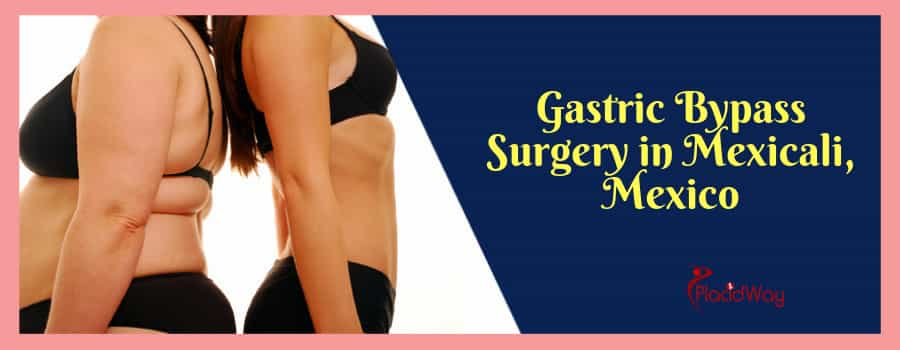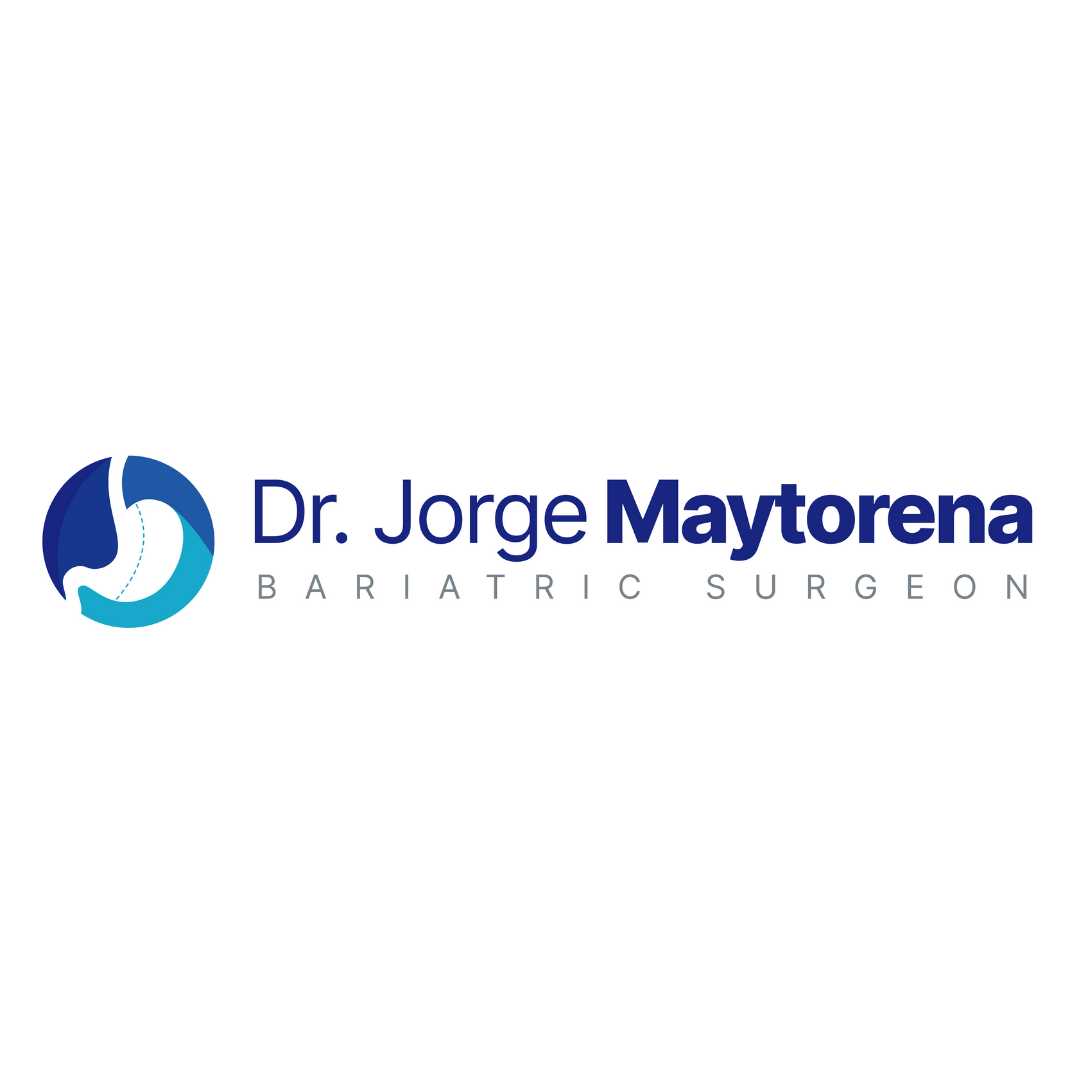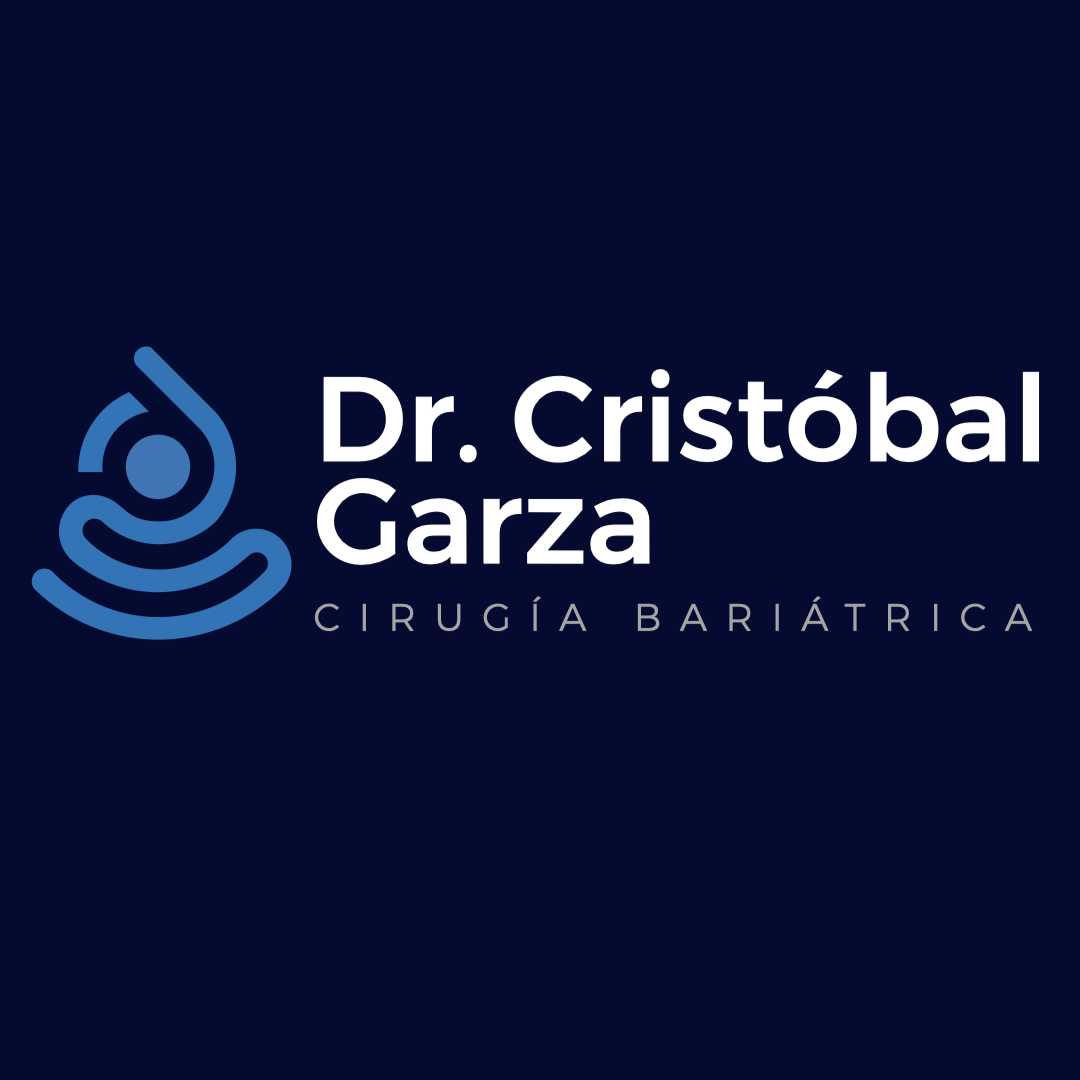A Guide to Gastric Bypass Surgery Cost in Mexicali, Mexico

Considering gastric bypass surgery is a significant step towards a healthier life, and for many, exploring options outside their home country has become a viable path. Mexicali, Mexico, has emerged as a popular destination for medical tourism, particularly for bariatric procedures like gastric bypass. One of the primary attractions is the potential for significant cost savings compared to countries like the United States. This blog post aims to provide a detailed understanding of the average price of gastric bypass surgery in Mexicali, Mexico, and answer crucial questions you might have.
The average price of gastric bypass surgery in Mexicali, Mexico, typically ranges from $5,000 to $8,500 USD. This is considerably lower than in the US, where costs can soar to $20,000-$30,000 or even higher. This price difference, coupled with the proximity to the US and the availability of experienced surgeons, makes Mexicali an attractive option. However, it's vital to understand what contributes to this cost and what to expect.
What is the Average Cost of Gastric Bypass Surgery in Mexicali, Mexico?
"The average cost of gastric bypass surgery in Mexicali, Mexico, generally falls between $5,000 and $8,500 USD."
This price range is an estimate and can fluctuate based on several factors. While significantly more affordable than in many Western countries, it's crucial to remember that the cheapest option isn't always the best. Prioritizing a reputable clinic and experienced surgeon is paramount for a safe and successful outcome. The allure of lower gastric bypass surgery cost in Mexicali should be balanced with thorough research into the quality of care.
Many individuals seeking weight loss surgery in Mexico are drawn to cities like Mexicali due to the substantial savings. This cost advantage allows patients to access potentially life-changing surgery that might be financially out of reach in their home countries. However, understanding the components of this cost is essential for making an informed decision.
What Factors Influence the Cost of Gastric Bypass in Mexicali?
"Several factors influence the cost of gastric bypass in Mexicali, including the surgeon's experience and reputation, the hospital or clinic's facilities and accreditation, the specific type of gastric bypass procedure (e.g., Roux-en-Y), the length of hospital stay, and whether pre-operative tests and post-operative care are bundled into the price."
Delving deeper, a highly experienced bariatric surgeon with a track record of successful gastric bypass surgeries may command a higher fee. Similarly, hospitals with advanced technology, international accreditations (like JCI), and comprehensive patient support services might have higher overall package prices. The complexity of your individual case can also play a role; for instance, revisional surgeries often cost more than primary procedures.
It's also important to clarify if the quoted gastric bypass surgery cost in Mexicali is all-inclusive. Some packages might cover everything from initial consultations and lab work to the surgery itself, hospital accommodation, medications, and initial follow-up appointments. Others might have separate charges for certain services, so always ask for a detailed breakdown.
What is Typically Included in the Gastric Bypass Surgery Cost in Mexicali?
"Typically, the gastric bypass surgery cost in Mexicali includes the surgeon's fees, anesthesiologist's fees, hospital facility charges, standard pre-operative tests, medications administered during the hospital stay, and a few nights of hospital accommodation. Some packages may also include airport transfers and hotel stays before and after hospitalization."
To ensure transparency, it's vital to get a comprehensive list of inclusions from your chosen clinic. Common inclusions are:
- Surgeon's professional fees
- Anesthesia and anesthesiologist's fees
- Operating room charges
- Standard pre-operative tests (e.g., blood work, EKG)
- Hospital stay (typically 2-3 nights)
- Medications administered during the hospital stay
- Basic post-operative medications to take back
- Nutritional consultation (initial)
Some clinics catering to medical tourists might offer more extensive packages that include ground transportation (airport-hotel-hospital), accommodation for a companion, and even some follow-up consultations via phone or video call. Always confirm these details in writing before committing.
How Do I Find a Qualified Bariatric Surgeon in Mexicali?
"To find a qualified bariatric surgeon in Mexicali, look for certifications from recognized Mexican and international bariatric surgery associations, verify their experience (number of procedures performed), read patient testimonials and reviews, and consider scheduling a virtual consultation to discuss your case and ask questions directly."
Choosing a skilled and experienced surgeon is arguably the most critical factor for a successful gastric bypass surgery. Start by researching clinics and surgeons online. Look for affiliations with organizations like the Mexican Council of Bariatric and Metabolic Surgery (CMCOEM) or international bodies like the International Federation for the Surgery of Obesity and Metabolic Disorders (IFSO). Board certification indicates a surgeon has met rigorous standards of training and expertise.
Don't hesitate to ask for the surgeon's credentials, including their medical school, residency, and fellowship training in bariatric surgery. Inquire about their experience specifically with gastric bypass procedures – how many they perform annually and their complication rates. Patient reviews and before-and-after photos can also provide insights, though it's important to consider a range of sources. A direct consultation (even virtual) will allow you to gauge their communication style and whether you feel comfortable with them.
Is Gastric Bypass Surgery in Mexicali Safe?
"Gastric bypass surgery in Mexicali can be safe if performed by experienced, board-certified surgeons in accredited hospitals that adhere to international safety standards. However, as with any surgery, there are inherent risks, and thorough research into the clinic's safety protocols and surgeon's qualifications is crucial."
Safety is a primary concern for anyone considering medical tourism. While Mexico has many excellent healthcare facilities, standards can vary. It's essential to choose a hospital or clinic that is well-equipped, maintains high hygiene standards, and has protocols for managing potential complications. Look for accreditations from bodies like the Joint Commission International (JCI) or certifications from the Mexican Ministry of Health.
Discussing safety measures directly with the clinic is recommended. Inquire about their infection control practices, the quality of their surgical instruments and medical supplies, and their emergency preparedness. While many patients have positive experiences and achieve excellent weight loss surgery in Mexico outcomes, being diligent in your selection process is key to minimizing risks.
What are the Risks and Complications Associated with Gastric Bypass Surgery?
"The risks and complications associated with gastric bypass surgery, whether in Mexicali or elsewhere, can include infection, bleeding, blood clots, adverse reactions to anesthesia, leaks from the staple lines, dumping syndrome, nutritional deficiencies, and, in rare cases, more severe complications. Choosing an experienced surgeon and adhering to post-operative guidelines can help minimize these risks."
It's important to have a realistic understanding of the potential downsides. Short-term risks often include:
- Infection: At the incision sites or internally.
- Bleeding: Requiring intervention.
- Blood clots: Deep vein thrombosis (DVT) or pulmonary embolism (PE).
- Anastomotic leaks: Leakage from the new connections made in the digestive system, which is a serious complication requiring prompt treatment.
- Bowel obstruction.
Long-term complications can include:
- Dumping syndrome: Nausea, vomiting, diarrhea, and weakness after eating certain foods, especially sugary ones.
- Nutritional deficiencies: Due to altered absorption, requiring lifelong vitamin and mineral supplementation (e.g., B12, iron, calcium, vitamin D).
- Gallstones: Rapid weight loss can increase the risk.
- Hernias: At incision sites or internally.
- Ulcers.
- Strictures: Narrowing of the connection between the stomach pouch and intestine.
Your surgeon should thoroughly discuss these potential risks with you during your consultation, tailoring the information to your specific health profile.
How Long is the Recovery Time After Gastric Bypass in Mexicali?
"The initial recovery time after gastric bypass in Mexicali typically involves a hospital stay of 2-3 days. Most patients can return to light activities within 2-4 weeks, but full recovery and adjustment to new eating habits can take several months. Adherence to post-operative dietary guidelines is crucial."
Immediately after surgery, you'll be on a liquid diet, gradually progressing to pureed foods, then soft foods, and finally, regular (but smaller-portioned) meals over several weeks. Pain and discomfort are managed with medication. Walking is encouraged soon after surgery to prevent blood clots.
Most patients plan to stay in Mexicali for about 7-10 days post-surgery for initial recovery and a follow-up check before traveling home. Returning to work depends on the nature of your job; desk jobs might be manageable within 2-3 weeks, while more physically demanding roles will require a longer leave. It's important to remember that recovery is not just physical; it also involves significant lifestyle and dietary adjustments.
What Kind of Pre-operative Preparations are Needed?
"Pre-operative preparations for gastric bypass surgery in Mexicali often include a special pre-op diet (usually low-carb, high-protein) for a few weeks to shrink the liver and reduce abdominal fat, stopping certain medications (like blood thinners), quitting smoking, and undergoing various medical evaluations and tests to ensure fitness for surgery."
Your surgical team will provide specific instructions. The pre-operative diet is crucial for making the surgery safer and technically easier for the surgeon. You'll likely need to:
- Follow a specific dietary plan: This often starts 2-4 weeks before surgery.
- Avoid smoking and alcohol: Smoking impairs healing, and alcohol can affect the liver.
- Discontinue certain medications: Your surgeon will advise which ones, particularly aspirin, NSAIDs, and blood thinners.
- Undergo medical clearance: This may involve blood tests, an EKG, a chest X-ray, and consultations with specialists if you have pre-existing conditions.
- Arrange for time off work and support at home for your recovery period.
Mental preparation is also key. Understanding the changes ahead and setting realistic expectations will contribute to a smoother journey.
What is the Typical Post-Operative Diet Like?
"The typical post-operative diet after gastric bypass is a phased approach, starting with clear liquids, then progressing to full liquids, pureed foods, soft foods, and eventually solid foods in small, frequent meals. Lifelong adherence to portion control and nutritional guidelines, including vitamin and mineral supplementation, is essential for long-term success and health."
This structured diet allows your new stomach pouch and altered digestive system to heal and adapt.
- Phase 1 (First few days - 1 week): Clear liquids (water, broth, sugar-free gelatin).
- Phase 2 (1-2 weeks): Full liquids (protein shakes, milk, strained soups).
- Phase 3 (2-4 weeks): Pureed foods (blended soft fruits, vegetables, lean proteins).
- Phase 4 (4-6 weeks onwards): Soft foods (cooked vegetables, soft fish, eggs).
- Long-term: Regular textured foods, focusing on lean protein, vegetables, and fruits, with very small portions. Carbohydrates and fats are introduced carefully.
Key principles include eating slowly, chewing thoroughly, avoiding drinking with meals, and prioritizing protein. You will also need to take prescribed vitamin and mineral supplements for life to prevent deficiencies.
How Much Weight Can I Expect to Lose After Gastric Bypass?
"Patients can typically expect to lose 60-80% of their excess body weight within the first 12-18 months after gastric bypass surgery. Individual results vary based on adherence to diet and exercise, starting weight, and overall health."
This significant weight loss can lead to dramatic improvements in obesity-related health conditions like type 2 diabetes, high blood pressure, sleep apnea, and joint pain. It's important to understand that gastric bypass is a tool, not a magic wand. Long-term success depends heavily on sustained lifestyle changes, including healthy eating habits and regular physical activity.
While rapid weight loss occurs initially, the rate slows over time. Maintaining weight loss requires ongoing commitment. Follow-up appointments with your bariatric team are crucial for monitoring progress and addressing any challenges.
Are There Financing Options Available for Gastric Bypass in Mexicali?
"Yes, some clinics in Mexicali partner with medical financing companies that offer loans to international patients for gastric bypass surgery. Patients can also explore personal loans, credit cards, or savings. It's advisable to inquire directly with the clinic about their accepted payment methods and any financing partnerships they may have."
Given that gastric bypass surgery cost in Mexicali is an out-of-pocket expense for most international patients (as foreign insurance rarely covers it), financing is a common consideration. Some larger bariatric centers in Mexico have established relationships with third-party medical loan providers that specialize in financing procedures for US and Canadian patients.
Alternatively, you can look into:
- Personal loans: From banks or credit unions in your home country.
- Medical credit cards: Some cards are specifically designed for healthcare expenses.
- Secured loans: If you have assets like home equity.
- Crowdfunding: Though less common for medical procedures.
Always carefully review the terms and interest rates of any financing agreement before committing.
What Questions Should I Ask Before Deciding on Gastric Bypass in Mexicali?
"Before deciding on gastric bypass in Mexicali, ask about the surgeon's qualifications and experience, the hospital's accreditation and safety protocols, the total cost and what's included, potential risks and complication rates, the post-operative care plan (including follow-up in your home country), and request patient testimonials or references."
A thorough consultation is your opportunity to get all your questions answered. Consider asking:
- About the Surgeon:
- Are you board-certified in bariatric surgery?
- How many gastric bypass procedures have you performed?
- What is your complication rate for this procedure?
- Can I speak to former patients?
- About the Facility:
- Is the hospital accredited? By whom?
- What safety measures are in place?
- How are emergencies handled?
- About the Procedure & Cost:
- What is the total cost, and what does it include/exclude?
- What type of gastric bypass technique do you recommend for me and why?
- What are the specific risks in my case?
- About Aftercare:
- What does the post-operative follow-up entail?
- How will you coordinate with my primary care physician back home?
- What support is offered for dietary and lifestyle changes?
Feeling comfortable and confident with your chosen surgeon and clinic is essential.
What are the Alternatives to Gastric Bypass Surgery?
"Alternatives to gastric bypass surgery include other bariatric procedures like gastric sleeve surgery (sleeve gastrectomy), adjustable gastric banding (less common now), and duodenal switch. Non-surgical options include medically supervised weight loss programs, diet, exercise, and medications, though these may be less effective for severe obesity."
If gastric bypass doesn't seem like the right fit, or if you're exploring all avenues, other options exist:
- Gastric Sleeve (Sleeve Gastrectomy): This is currently the most common bariatric procedure worldwide. It involves removing a large portion of the stomach, creating a smaller, banana-shaped "sleeve." It's primarily restrictive but also has some metabolic effects.
- Mini Gastric Bypass (One Anastomosis Gastric Bypass - OAGB): A variation of the traditional gastric bypass, involving a longer stomach pouch and a single connection (anastomosis) to the small intestine. It is gaining popularity due to its simplicity and effectiveness. Some clinics in Mexicali offer this.
- Adjustable Gastric Band: Involves placing an inflatable band around the upper part of the stomach. Its use has declined due to lower long-term efficacy and higher rates of re-operation compared to sleeve or bypass.
- Duodenal Switch (DS): A more complex procedure that combines stomach restriction with significant malabsorption. It typically leads to the most weight loss but also has a higher risk of nutritional deficiencies.
- Non-Surgical Options: For individuals with lower BMIs or those not ready for surgery, medically supervised diet and exercise programs, potentially with weight loss medications, can be considered. However, for morbid obesity, surgery often provides more significant and sustained results.
Discussing these alternatives with a bariatric specialist in Mexicali or your home country can help you determine the best path for your individual needs and health status.
How Long Do I Need to Stay in Mexicali for the Surgery?
"Patients typically need to stay in Mexicali for gastric bypass surgery for approximately 7 to 10 days. This usually includes a couple of days for pre-operative preparations and consultation, 2-3 nights in the hospital post-surgery, and a few additional days for initial recovery and a follow-up check-up before being cleared to travel home."
This timeframe allows for:
- Pre-operative evaluation: Final consultation with the surgeon, any remaining tests.
- Surgery: The procedure itself.
- Hospital recovery: Close monitoring in the initial days after surgery.
- Early outpatient recovery: Resting in a nearby hotel or recovery house.
- Post-operative check-up: Ensuring you are healing well before your journey home.
Some patients choose to stay slightly longer if they are traveling from a great distance or prefer more recovery time before a long trip. It's best to confirm the recommended stay duration with your chosen clinic as it can vary slightly.
What are the Long-Term Effects of Gastric Bypass Surgery?
"The long-term effects of gastric bypass surgery are generally positive, including significant and sustained weight loss, resolution or improvement of obesity-related comorbidities like diabetes and hypertension, improved quality of life, and increased longevity. However, it also necessitates lifelong adherence to dietary changes, vitamin supplementation to prevent nutritional deficiencies, and regular medical follow-ups."
Positive long-term effects often include:
- Durable weight loss: Most patients maintain significant weight loss years after surgery.
- Improved health: Remission or significant improvement in type 2 diabetes, high blood pressure, sleep apnea, high cholesterol, and joint pain.
- Enhanced quality of life: Increased mobility, self-esteem, and ability to participate in activities.
- Potential for longer life: Studies have shown that bariatric surgery can reduce overall mortality in severely obese individuals.
Potential long-term challenges can include:
- Nutritional deficiencies: Lifelong supplementation is crucial.
- Risk of regaining some weight: If lifestyle changes are not maintained.
- Need for occasional follow-up procedures: Such as hernia repair or addressing complications, though this is not common for everyone.
- Changes in alcohol metabolism: Alcohol is absorbed faster and has a stronger effect.
- Body contouring surgery: Some patients opt for procedures to remove excess skin after massive weight loss.
Understanding these long-term implications is crucial for making an informed decision and committing to the necessary lifestyle adjustments.
Ready to explore your options for gastric bypass surgery in Mexicali or other world-class destinations? Explore PlacidWay to find reputable clinics, experienced surgeons, and affordable packages tailored to your needs. Take the next step on your journey to a healthier you today!


.png)




.png)









Share this listing